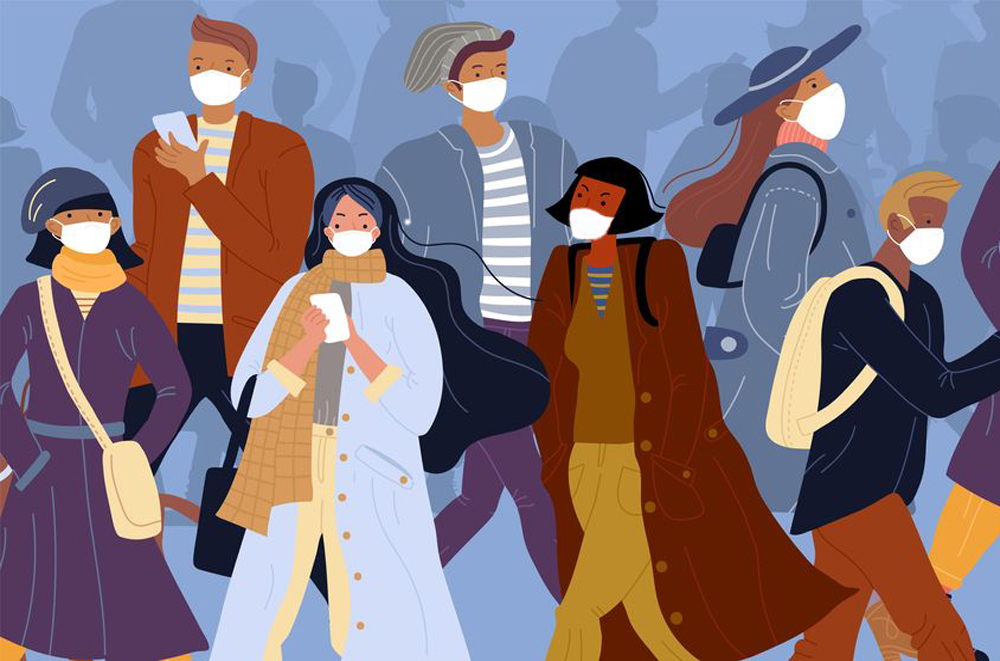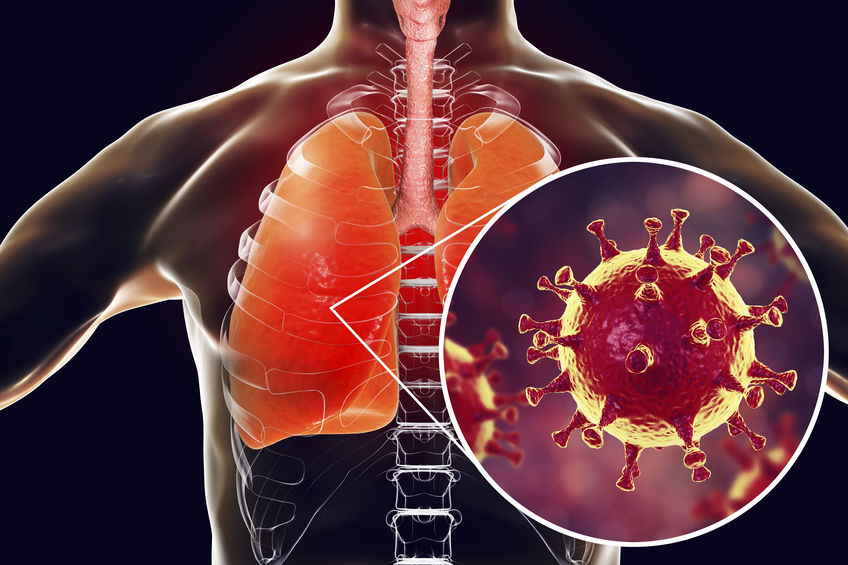Our world has completely changed since mid-March of 2020, due to this global pandemic. Businesses of all shapes and sizes, as well as industry types, have had to implement new guidelines, enhanced safety protocols and implementation of state and federal recommendations, which has often resulted in extensive changes on how they serve their clients. Everything CPAP’s focus has always been on our patient’s health, safety and sleep hygiene, and we too have had to make changes, updates and added new procedures in the way we provide care and support to our patients. Thus we have provided the following COVID-19 Q&A for our patients and those interested in using our services:
How is Everything CPAP responding to COVID-19 to keep our patients and staff safe and adhere to local and federal guidelines?

Everything CPAP’s leadership and staff are aware of the impact that COVID-19 has had on the world today, thus we are taking the situation very seriously. Our staff is consistently trained and updated on the latest in infection control and safety precautions; as to ensure our patients’ and our staff’s safety and health.
- We regularly review and implement any and all recommended CDC guidelines and state mandates.
- All rooms of our offices are cleaned daily, and now we ensure that all frequently touched surfaces are sanitized after each and every patient’s visit.
- Our entire staff is required to wear face masks (that cover the nose and mouth) at all times to help slow the spread of the virus.
- We ask that all patients and visitors wear a mask as you enter our building and keep it on until you exit. If you don’t have a mask or forgot it at home, we will provide you with one as a courtesy.
- Also, we ask all visitors and patients to be prepared to be screened at the door and have their temperatures checked.
As a locally-owned small business, we are dedicated to being true to our mission statement: “The owners and employees of Everything CPAP are dedicated to the improvement and extension of our patient’s lives through personalized care, use of state of the art equipment, constant innovation, and clinical research.” Everything CPAP quickly moved to a virtual environment to continue providing our patients with the care, service, and support that they have come to expect. To our knowledge, we are the first DME provider in Idaho that has transitioned to virtual visits, thus far. Utilizing telehealth with our patients has allowed us to help keep our patients and staff safe, as well as allowed us to do our part to help slow the spread of the Coronavirus on our local community. We appreciate your support and understanding in these changes.
How has the CPAP industry changed to respond to COVID patients?
Since the beginning of the pandemic, we are frequently receiving questions about COVID-19, sleep hygiene and CPAP utilization. So we’d like to provide a trust resource to answer many of these questions: The American Academy of Sleep Medicine (AASM) has published a list of FAQs regarding COVID-19 and CPAP: See article: Sleep Doctor Answers Questions about COVID-19 and Sleep
Do I have a higher risk of getting coronavirus because I have sleep apnea?
There is no evidence linking sleep apnea with a risk for contracting Coronavirus. People who have a higher risk for severe illness from the coronavirus include:
- Those who are 65 years of age or older
- Those who have serious underlying medical conditions. These conditions include
- Chronic lung disease
- Moderate to severe asthma
- Serious heart conditions
- Severe obesity with a body mass index (BMI) of 40 or higher
- Diabetes
- Chronic kidney disease
- Liver disease
- Those who have a medical disorder, or take a medication, that weakens the immune system.
- Those who have had close contact with another person who has the coronavirus.
If I have symptoms of the Coronavirus, will using a CPAP device spread the virus to others?
Current evidence suggests that the virus that causes COVID-19 spreads between people who are in close contact with one another (within about 6 feet). It is transmitted through respiratory droplets produced when an infected person coughs or sneezes. However, there is some concern that using CPAP could spread the virus through the exhalation port, which allows carbon dioxide to escape from your mask. This port also may release smaller virus-containing particles as an “aerosol,” which can remain suspended in the air for a few hours. It’s possible that your bed partner could inhale these virus particles. Therefore, it is important for those who have contracted COVID-19 to isolate themselves by sleeping alone in a separate bedroom. You can continue to use your CPAP device while sleeping in this recovery room.
The virus also can remain on surfaces for a length of time. Others could get the virus by touching an infected surface and then touching their own mouth, nose or eyes. Be sure that you routinely clean “high-touch” surfaces in your recovery room and bathroom. This includes regularly cleaning or disinfecting phones, remote controls, counters, tabletops, doorknobs, bathroom fixtures, toilets, keyboards, tablets, and bedside tables.
Should I use CPAP if I have symptoms of the coronavirus but can’t self-isolate?
If you have symptoms of the Coronavirus but are unable to isolate yourself in a separate bedroom, then you should contact your medical provider. Ask your medical provider if there are short-term interventions or alternative treatments for sleep apnea that could help you while you recover from the Coronavirus.
If I have the Coronavirus, will my CPAP be helpful for my breathing? Or could CPAP cause the Coronavirus to get worse?
If you have contracted the Coronavirus, you should continue using CPAP while sleeping alone in a separate bedroom. There is no evidence that using CPAP will cause the Coronavirus to get worse.
If I have Coronavirus, how should I clean and disinfect my CPAP mask and hose?
The CDC recommends that you should clean and disinfect your medical equipment according to the manufacturer’s instructions.* The directions for CPAP masks and hoses normally include regular cleaning with soap and water.
- *Keeping it clean: CPAP hygiene (Philips)
- *How to clean your CPAP equipment (ResMed)
The CDC also recommends that you clean and disinfect frequently touched surfaces in your household. This includes door knobs, light switches and handles. Learn more from the CDC about how to clean and disinfect your household.
Is it safe to use CPAP if I don’t have symptoms of the Coronavirus?
If you have Coronavirus, you may be able to spread it to others before you have symptoms. Even if you don’t have symptoms of the Coronavirus, you may want to sleep and use CPAP in a separate bedroom during this public health emergency.
Distilled water is unavailable in my area. What should I use in my CPAP humidifier?
According to ResMed, “Optimal humidifier performance requires distilled water. That’s because most or all of its minerals have been removed, preventing mineral buildup in the humidifier tub. That said, tap or bottled water may also be used. It will not harm the device or pose a risk to patients. It will, however, require more rigorous humidifier cleaning to prevent excess mineral buildup in the tub.”
How can respiratory disorders, whether short-term or long-term, affect sleep? (It’s still unsure of the long-term effects of COVID-19 to the respiratory system.)
Sleep is a basic biological function in humans. There is no way around it. We need sleep and not just sleep but quality sleep. It is a known fact that untreated sleep related breathing disorders have a negative impact on our lives. Some of the biggest risk factors of untreated sleep related breathing disorder such as Obstructive Sleep Apnea is Heart disease and diabetes. OSA happens when the patients airway is obstructed or occluded while sleeping, and causes one to not get the quality of sleep our bodies need.
It is still not known what the long term effects of COVID-19 will be, regardless if the person has a sleep-related breathing disorder or not. However, what we do know is that OSA is a treatable condition with CPAP interventions, which the services and support of Everything CPAP is focused on providing. If you have concerns that you may be at high risk of contracting COVID-19, we recommend you contact your primary care physician or your sleep physician.
How can CPAP assist post-COVID patients?
CPAP therapy was designed to treat sleep-related breathing disorders, which consist primarily of Obstructive Sleep Apnea and Obesity Hypoventilation Syndrome. Whether or not you have had COVID-19 does not affect how PAP therapy works to provide the necessary quantity and quality of sleep your body needs. We know that patients that use their CPAP nightly and have good sleep hygiene tend to be healthier and are able to live a more active lifestyle than if not having their sleep related breathing disorder treated. We also know that if you’re sleep related breathing disorder is not treated you are at higher risk of developing other comorbidities such as High Blood Pressure, Stroke, Heart Disease, Diabetes, memory problem and even a weakened immune system. Which can make you more susceptible to illness.
What have been some of the marked challenges of HME/DME suppliers during the pandemic? How has Everything CPAP met these challenges?
Some of the challenges that we have been faced with is mainly in regard to new patients, and being able to provide them with hands-on and in office setup of their PAP equipment. Because there is a risk of PAP therapy aerosolizing the virus, it has been our policy to not have PAP equipment turned on in the office. This has posed some challenges to helping patients get the proper fit for their mask. However, with the addition of our Virtual Visits (telehealth) and continual follow-up with our patients, we have been able to overcome this problem and our patients are reportedly doing well.
The silver lining in this is that, we find that our patients are becoming better equipped at addressing their own mask leaks, adjusting their headgear, and repositioning their mask. We find that our patients tend to have an increased sense of ownership in their therapy and equipment usage. We have observed that this is because of their direct hands-on experience from the beginning of their PAP therapy.
It is possible that our clinicians may incorrectly size a mask from time to time or a particular mask just really doesn’t work well for each patient. One thing that Everything CPAP does is offer a 30-day mask guarantee. We will work with our patients to find a good and comfortable fitting mask.
It is our goal to make sure we do everything we can to help you have a great experience from the first time you come in and every time after for years to come. Wishing all a good night’s sleep and a quick end to this pandemic! Be safe.
We also want to offer thanks and praise to all frontline workers, including our staff, and our hearts go out to the many families who have lost loved ones.








